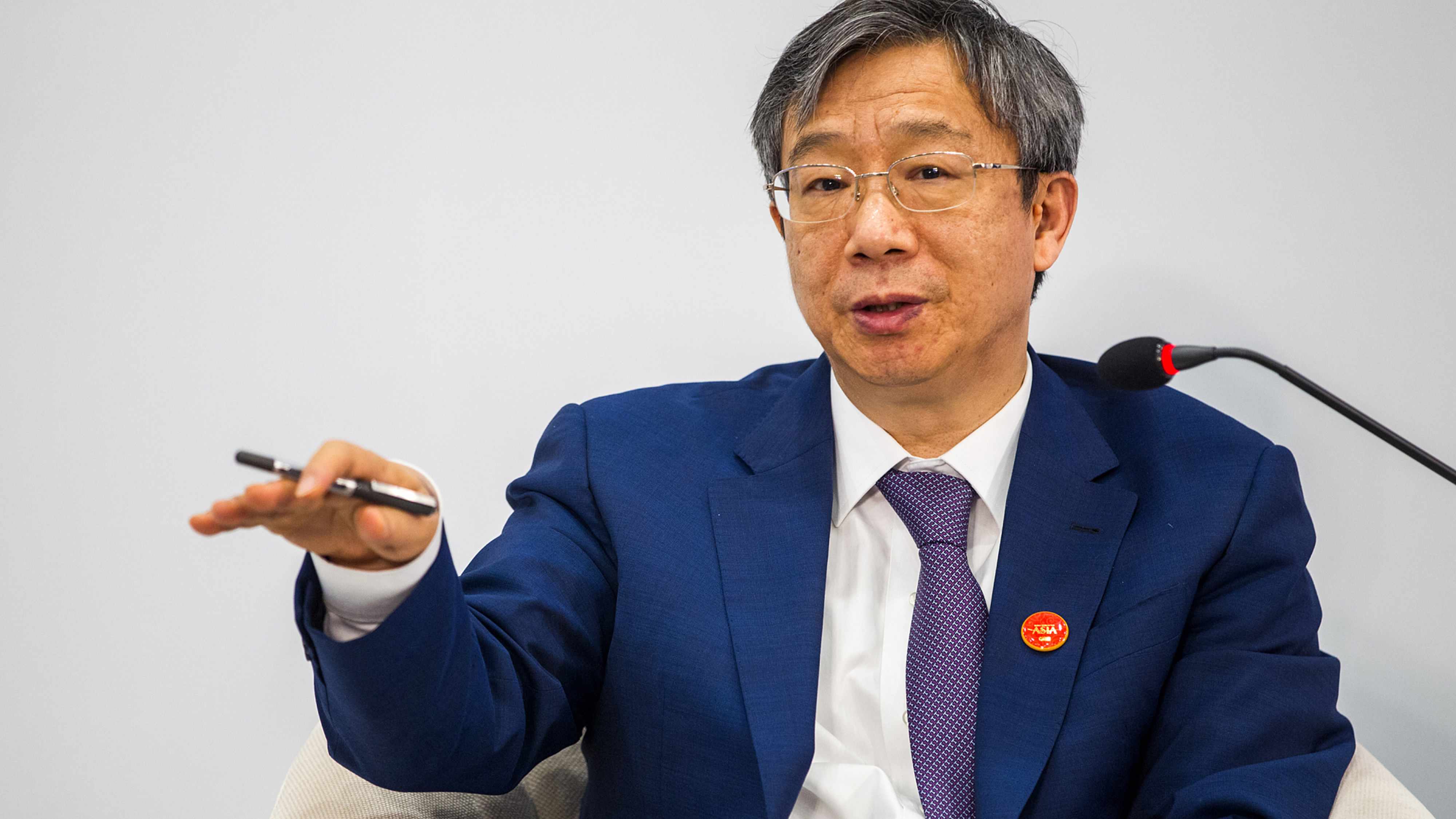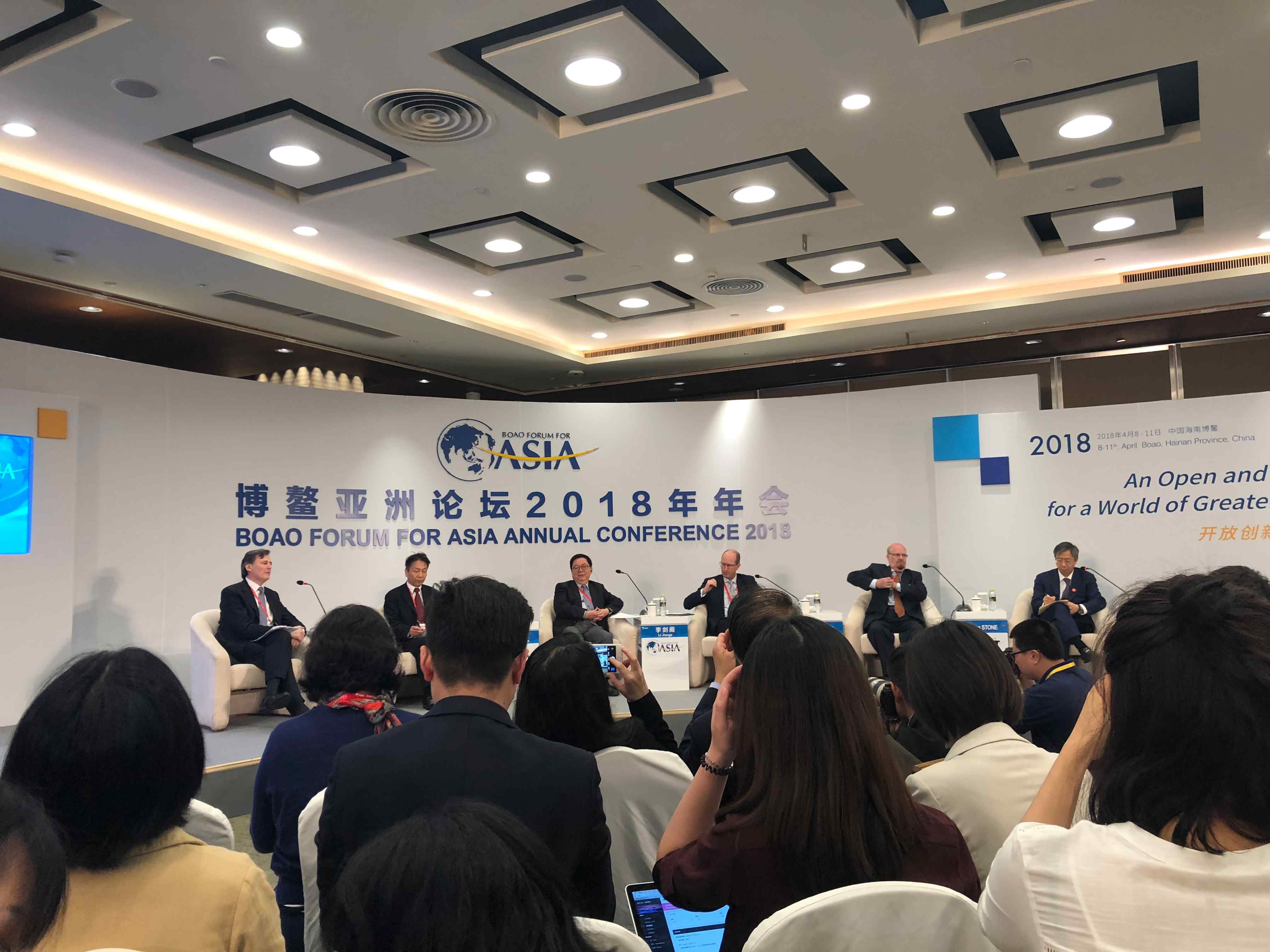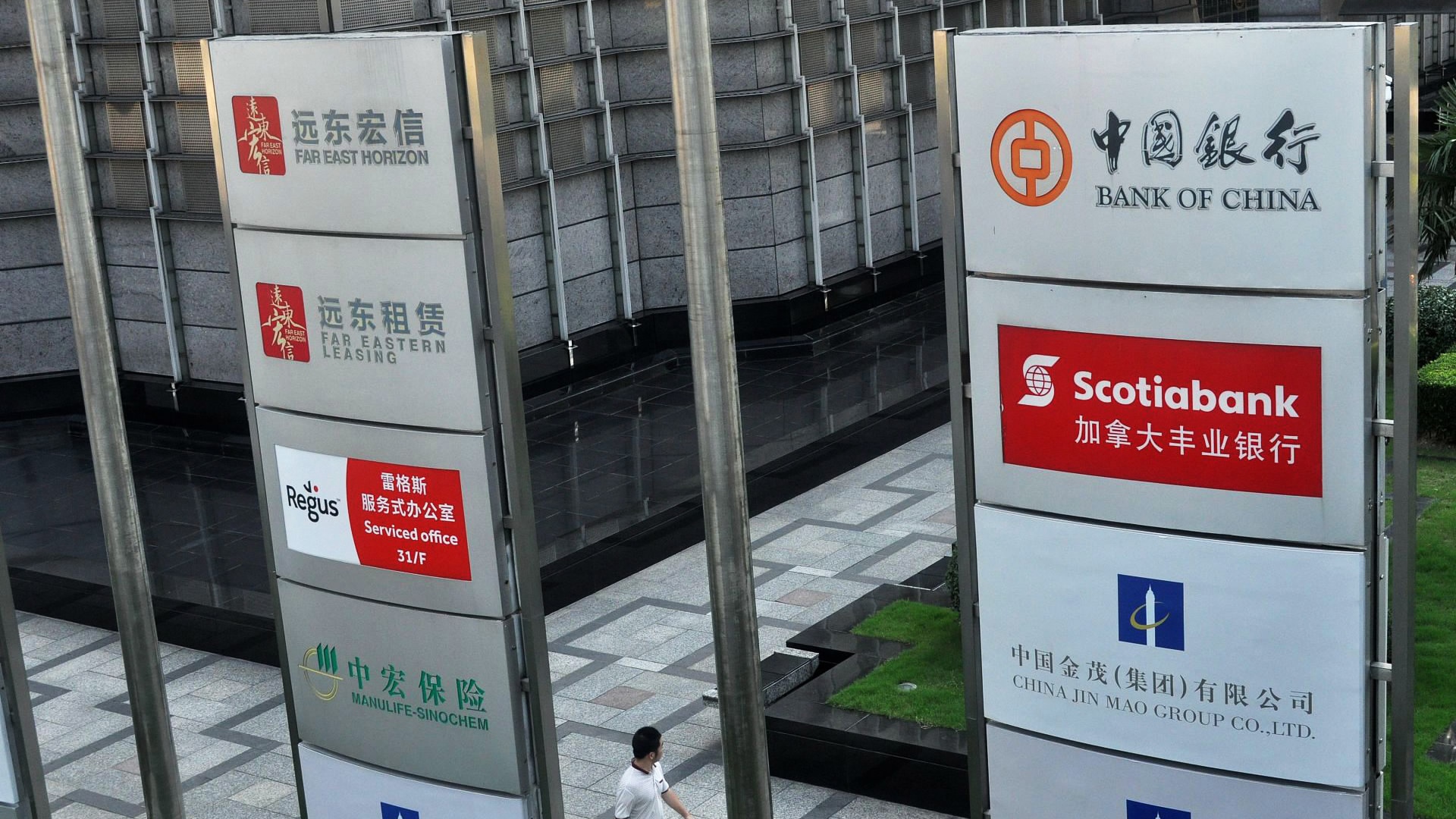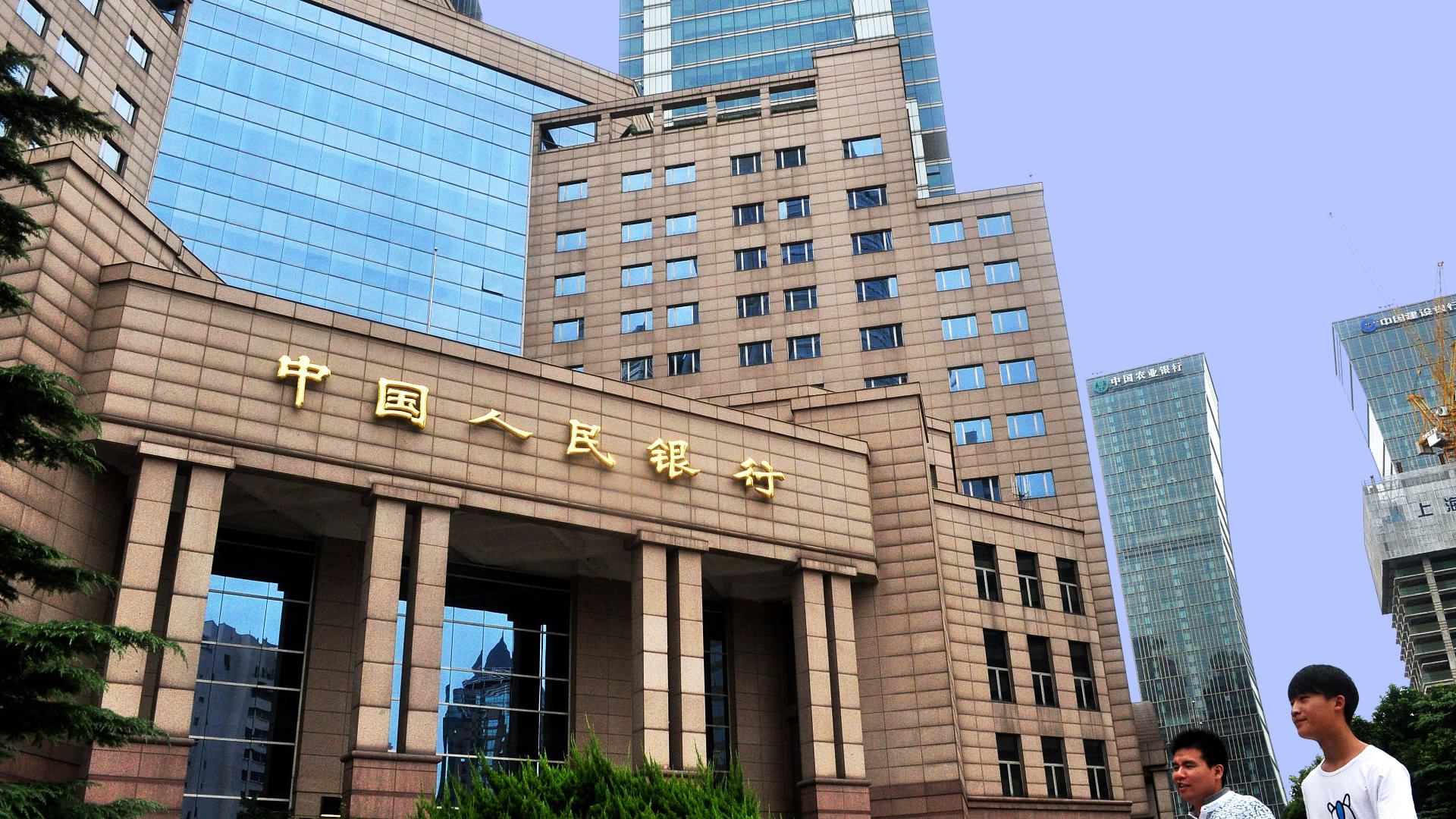
Business
10:13, 11-Apr-2018
China details opening-up measures in financial sector
By Wang Zheng at Boao Forum in Hainan province

China's newly appointed central bank governor Yi Gang has announced a slew of reform measures regarding the foreign capital entering China’s financial market at the annual meeting of Boao Forum for Asia. This comes a day after President Xi Jinping’s speech on the opening ceremony, vowing a more open Chinese financial market.
The newly announced measures include canceling foreign capital’s holding ceiling in establishing commercial banks and financial asset management companies, allowing foreign banks to set up branches in China; raising ceiling of foreign holdings in stock brokerages, fund, futures companies, and life insurance companies to 51%, and the limit will be lifted three years later; quadrupling current quota of mainland Hong Kong stock connect from May 1; allowing qualified foreign investors to launch insurance agent and assessment business; allowing foreign insurance brokers the same business scope as their Chinese peers. Majority of these measures are expected to be implemented before the end of June this year.

CGTN Photo
CGTN Photo
The governor also says the central bank is also working on other opening up measures in the financial sector, such as allowing foreign capital to enter more banking businesses, like financial leasing and trust, and lifting a two-year representative office requirement for foreign insurance companies before they could set up a company. Moreover, with the presence of deputy chief at China’s securities regulator Fang Xinghai, Yi says China will try its best to launch the Shanghai London stock connect within 2018.
The official notices these measures are expected to boost Chinese financial companies' competitive ability in the global market.

VCG photo
VCG photo
Regulation in the financial market
When announcing the reform measures, the central bank governor also vows regulation in the financial sector will be stepped up in accordance with the opening up measures, to prevent financial risk and maintain market stability.
He also shares his thoughts on future regulation in the market. Current separate regulation works well, but may face difficulties when dealing with cross market activities. Yi mentions the central bank is currently working on guidelines in overall asset management market regulation, so as to make all asset management products to compete under the same rules, despite these products may come from different industries.

VCG photo
VCG photo
China US trade dispute
China’s monetary policy mainly focuses on domestic macro economy and serves the real economy, says Mr. Yi, when addressing a question on whether China will use monetary policy as a leverage in negotiating with US on trade dispute. He further explains that current market-based foreign exchange rate mechanism works fine, and will continue to work in the future.
He also shares his opinion on unnoticed factors behind the conflict. Though China has a trade surplus with US in terms of goods, it balances out as China also has a trade deficit with US in the field of service. And as China further opens up its services sector, American companies will have more advantages in the future.
2376km

SITEMAP
Copyright © 2018 CGTN. Beijing ICP prepared NO.16065310-3
Copyright © 2018 CGTN. Beijing ICP prepared NO.16065310-3